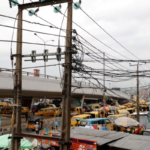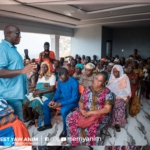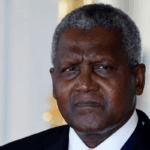
Ghana has joined 16 other African countries in endorsing a National Energy Compact under Mission 300, a bold World Bank Group and African Development Bank initiative to connect 300 million Africans to electricity by 2030.
At the Bloomberg Philanthropies Global Forum, President John Mahama pledged Ghana’s commitment, stressing that universal access to energy was central to the country’s fight against poverty and inequality.
“Ghana believes universal energy access is key to empowering businesses, reducing poverty, and creating equal opportunities.
“This goal can only be achieved through strong government–private sector partnerships, supported by an enabling environment for sustainable investment,” he said.
The Mission 300 program has already connected 30 million people since its launch, with more than 100 million additional connections in the pipeline, according to World Bank Group President Ajay Banga.
“Electricity is the bedrock of jobs, opportunity, and economic growth. That’s why Mission 300 is more than a target—it is forging enduring reforms that slash costs, strengthen utilities, and draw in private investment,” he explained.
Across the continent, leaders echoed the urgency of tackling energy poverty. Kenya’s President William Ruto said his country was working to achieve universal electricity access and clean cooking by 2030, while Ethiopia’s President Taye Atske Selassie highlighted plans to unlock vast renewable resources and boost regional interconnections.
Mozambique’s President Daniel Chapo pledged to consolidate his country’s role as a regional energy powerhouse by exporting clean power to neighbours.
In Sierra Leone, President Julius Maada Bio described his country’s compact as “the most ambitious and comprehensive energy infrastructure initiative ever developed” for its people.
Meanwhile, Cameroon’s President Paul Biya emphasised a shift toward renewables to build a low-carbon future, and the Republic of Congo pointed to its 27,000 MW hydroelectric potential as a game-changer for both national and continental power supply.
African Development Bank Group President Dr. Sidi Ould Tah underscored why Mission 300 is transformative.
“Reliable, affordable power is the fastest multiplier for small and medium enterprises, agro-processing, digital work, and industrial value-addition. Give a young entrepreneur power, and you’ve given them a paycheck,” he noted.
National Energy Compacts, the building blocks of the initiative, serve as tailored blueprints that integrate reforms in infrastructure, financing, and policy.
Earlier this year, another 12 countries, including Nigeria, Senegal, and Côte d’Ivoire, endorsed their own compacts, collectively pledging over 400 policy actions to strengthen utilities, reduce investor risk, and eliminate bottlenecks.
With Ghana now fully on board, President Mahama’s call for private-sector partnerships highlights the challenge ahead: matching political commitments with real investments and reforms to deliver electricity for all.




